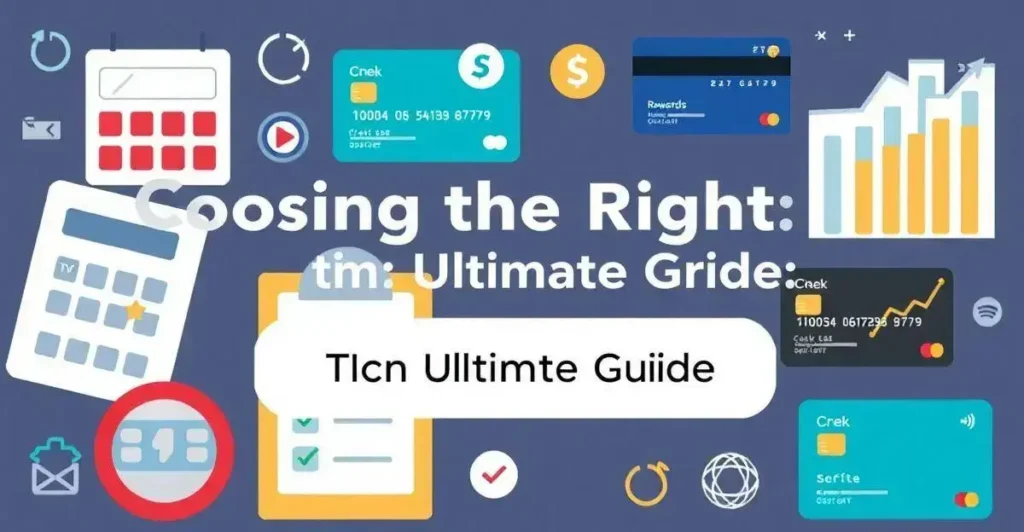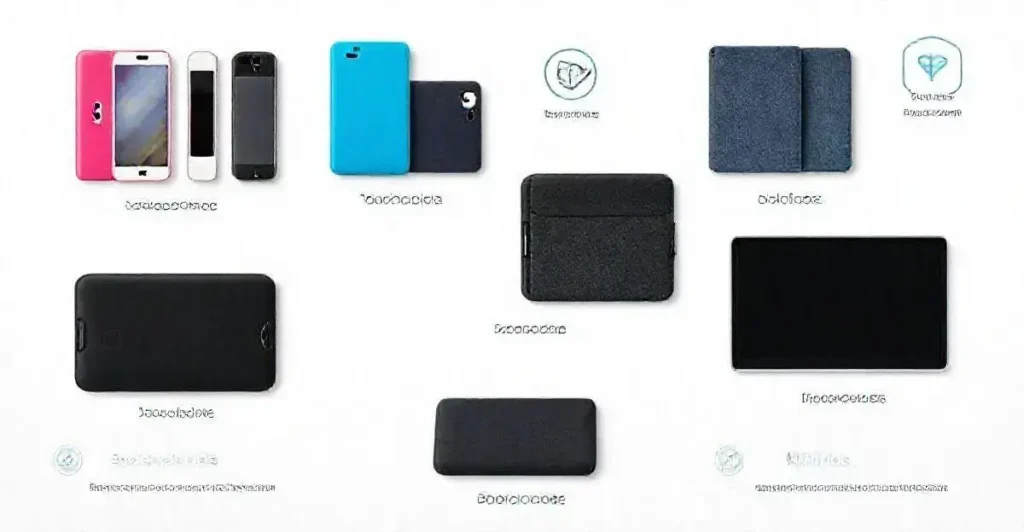Credit Card Fraud Attorney can be your best ally when dealing with the stress and financial loss of fraud. Unauthorized charges, identity theft, and account takeovers happen more often than you think. Knowing how fraud works is the first step to protecting yourself.
Fraudsters use different tactics, from online scams to stolen physical cards. The damage goes beyond money—your credit score and financial security are at risk. Recovering from fraud can be complicated, but legal help makes a difference.
If you’re facing credit card fraud, you don’t have to handle it alone. Learn how an attorney can help you fight back and reclaim your financial stability.
Understanding Credit Card Fraud
Credit card fraud occurs when someone uses your credit card information without your permission. This unlawful act may involve unauthorized purchases, identity theft, or account takeovers. It’s essential to understand how this fraud happens to protect yourself effectively.
Types of Credit Card Fraud
There are several methods that criminals use to commit credit card fraud. One common technique is card-not-present fraud, which occurs during online transactions where the thief doesn’t physically handle the card. Another is card-present fraud, which happens when a card is stolen and used at a point of sale.
Common Signs of Fraud
Being aware of signs indicating credit card fraud is crucial. Unexpected charges, irregular transaction patterns, and communication from your bank about suspicious activities can all be red flags. Regularly check your statements to catch any discrepancies quickly.
How Fraud Affects You
The impact of credit card fraud can be severe, leading to financial losses and damage to your credit score. Recovering from fraud may involve complex legal actions and financial institutions disputing transactions on your behalf, which can be time-consuming and stressful.
Legal Definitions
Understanding the legal definitions surrounding credit card fraud is essential. Terms like identity theft, card skimming, and account takeover are commonly encountered. Familiarity with these definitions can help you navigate legal discussions and procedures more effectively.
Role of a Credit Card Fraud Attorney
A credit card fraud attorney plays a vital role in helping victims of fraud navigate the complex legal system. They offer legal advice and represent clients in disputes with credit card companies or banks. By understanding the nuances of fraud cases, these attorneys can ensure that victims are adequately compensated for their losses.
Legal Expertise
Credit card fraud attorney possess a deep understanding of fraud laws and regulations. They can interpret legal jargon and explain options clearly to their clients. This expertise is crucial in building a case that proves the fraud occurred and shows how it affected the victim.
Gathering Evidence
One of the primary responsibilities of a credit card fraud attorney is to gather evidence. This may include collecting transaction records, witness statements, and any relevant documentation. A solid collection of evidence can significantly strengthen a case against the perpetrators.
Navigating Legal Processes
Dealing with credit card fraud often requires navigating various legal processes and paperwork. Attorneys can help clients understand what is needed, from filing claims to dealing with creditors. Their guidance ensures that all deadlines are met, which is essential in legal matters.
Negotiating Settlements
Many fraud cases are settled outside of court. Credit card fraud attorney are skilled negotiators who can advocate for their clients’ best interests. They aim to secure a fair settlement that covers all losses incurred due to fraud. This can include recovering stolen funds and handling any related financial repercussions.
Providing Peace of Mind
Engaging a credit card fraud attorney also provides peace of mind to victims. Knowing that a knowledgeable professional is handling the legal aspects allows victims to focus on recovering from their experience. This emotional support is just as important as legal representation.
How to Choose the Right Attorney

Choosing the right credit card fraud attorney is crucial for your case. Start by searching for attorneys who specialize in credit card fraud and understand the complexities of fraud law. This specialization ensures they have the necessary knowledge and experience to handle your situation effectively.
Check Qualifications
Always check the qualifications of potential attorneys. Look for attorneys with a strong background in fraud cases and a good track record of success. Additionally, check their education, certifications, and years of experience in the legal field.
Read Reviews and Testimonials
Online reviews and testimonials from previous clients can provide insight into an attorney’s competence. Look for reviews detailing their client interactions and case results. A pattern of positive feedback often indicates a reliable attorney.
Schedule Consultations
Many attorneys offer free consultations. Use this opportunity to ask questions about their experience and approach to handling fraud cases. Gauge how comfortable you feel discussing your concerns with them.
Discuss Fees and Payment Options
Understanding the attorney’s fees is vital before making a decision. Discuss payment methods and whether they charge by the hour or offer flat fees. Make sure to clarify any additional costs that may arise during the legal process.
Assess Communication Style
Effective communication is key in any attorney-client relationship. During consultations, pay attention to how well the attorney listens and responds to your questions. Choose someone who communicates clearly and promptly keeps you informed throughout the process.
Steps to Take After Fraud Occurs
If you suspect credit card fraud, it’s crucial to act quickly to minimize damage. Here are essential steps to take immediately after fraud occurs:
1. Report the Fraudulent Activity
Contact your credit card issuer or bank right away. Report any unauthorized transactions and request to freeze your account. The faster you report the fraud, the better your chances of recovering lost funds.
2. Change Your Passwords
Update your online banking and shopping passwords. Use strong, unique passwords for each account and enable two-factor authentication whenever possible. This adds an extra layer of protection.
3. Obtain a Fraud Alert
Place a fraud alert on your credit report by contacting one of the major credit bureaus: Experian, Equifax, or TransUnion. This will notify other bureaus and make it harder for thieves to open accounts in your name.
4. Review Your Statements
Carefully check recent bank and credit card statements for any additional unauthorized transactions. Document any suspicious activity, as this information will be beneficial when discussing your case with an attorney or bank representative.
5. File a Report
File a report with your local law enforcement agency. This can help validate your claim and may be required by your bank or credit card issuer. Always keep a copy of the report and any correspondence.
6. Monitor Your Credit Reports
Regularly check your credit reports for any unknown accounts or changes. You are entitled to one free credit report from each bureau annually. Look for inaccuracies and dispute them if necessary.
7. Consider a Credit Monitoring Service
Enrolling in a credit monitoring service can help you stay informed about changes to your credit report. These services often provide alerts for new accounts or significant changes.
Legal Processes for Fraud Cases
Understanding the legal processes for fraud cases is essential after experiencing credit card fraud. While each case may vary, there are several common steps involved in the legal proceedings.
1. Initial Consultation
After contacting a credit card fraud attorney, you will have an initial consultation. During this meeting, you will discuss the details of your case, provide evidence, and outline your goals. This helps the attorney determine your options moving forward.
2. Gathering Evidence
To build a strong case, your attorney will need to gather evidence. This can include transaction records, statements from witnesses, and any relevant documentation. The more thorough the evidence, the easier it is to prove fraud.
3. Filing a Claim
Your attorney will help you file a claim with your credit card issuer or bank. This will formally start the process of seeking recovery for your losses. Be aware that your institution may require specific forms or details about the fraud.
4. Investigation Process
Once a claim is filed, a formal investigation will take place. The credit card company or bank will assess the evidence you presented. If they find the fraud was valid, they may refund the lost amount or reverse the charges.
5. Potential Legal Action
If the card issuer denies your claim or does not provide adequate compensation, your attorney may suggest pursuing further legal action. This can include filing a lawsuit against the fraudulent party or negotiating a settlement.
6. Court Proceedings
If your case proceeds to court, your attorney will represent you throughout the legal process. They will present evidence, call witnesses, and make legal arguments on your behalf. The court will then make a ruling based on the evidence provided.
7. Recovery of Losses
If the court rules in your favor, you may recover your losses. This can include the funds lost to fraud and sometimes additional damages, depending on the circumstances. Your attorney will assist you in collecting any awarded amounts.
Tips for Preventing Credit Card Fraud

Preventing credit card fraud is essential for safeguarding your financial information. Here are some effective tips to help you keep your credit cards secure:
1. Use Strong Passwords
Choose passwords that are difficult to guess and include a mix of letters, numbers, and symbols. Avoid common words or easily accessible information, such as birthdays or names.
2. Enable Two-Factor Authentication
When available, enable two-factor authentication for your online accounts. This adds an extra layer of security by requiring a second form of verification, such as a text message, in addition to your password.
3. Monitor Your Accounts Regularly
Frequently check your bank and credit card statements for unauthorized transactions. Report any suspicious activity to your bank immediately. Setting up account alerts for transactions can also help you stay informed.
4. Avoid Public Wi-Fi for Transactions
When accessing sensitive information or making purchases, avoid using public Wi-Fi networks. If you must use public Wi-Fi, consider using a Virtual Private Network (VPN) to encrypt your internet connection.
5. Secure Your Devices
Keep your computer, smartphone, and other devices secure by installing antivirus software and enabling firewalls. Regularly update your software to protect against vulnerabilities.
6. Shred Sensitive Documents
Shred documents containing personal information, including bank statements and credit card offers, before disposing of them. This helps prevent thieves from obtaining your information.
7. Be Cautious with Phishing Scams
Be wary of emails, texts, or phone calls asking for personal information. Legitimate companies will not request sensitive information this way. Always verify the source before providing any details.
8. Set Up Notifications
Many banks offer the option to receive transaction alerts via text or email. Enabling these notifications helps you stay aware of any activity on your account, making it easier to detect fraud quickly.
Recovering Losses from Credit Fraud
If you have been a victim of credit fraud, recovering your losses can be a challenging but achievable process. Here are some steps to help you recover your funds:
1. Report the Fraud Immediately
As soon as you notice fraudulent activity, report it to your bank or credit card issuer. They can freeze your account and investigate the charges, which is the first step in recovering any losses.
2. Document Everything
Keep detailed records of all communication with your bank, including dates, times, and the names of any representatives you speak with. Also, document unauthorized charges and any actions you take. This information is vital for your case.
3. File a Fraud Report
Submit a fraud report to your financial institution. This may include filling out specific forms they provide. Many banks have dedicated fraud departments that can guide you through this process.
4. Contact Credit Bureaus
Notify the major credit bureaus—Experian, Equifax, and TransUnion—about the fraud. You can place a fraud alert on your credit report, making it harder for the fraudster to open new accounts in your name.
5. Consider Legal Action
If your bank or credit card company denies your claim or does not provide adequate compensation, consult a credit card fraud attorney. They can advise you on how to proceed with legal action against the fraudster or the financial institution if necessary.
6. Monitor Your Credit
Regularly check your credit reports for any new unauthorized accounts or inquiries. You are entitled to one free credit report per year from each bureau, which you can access online. This helps ensure that no further fraudulent actions occur.
7. Recovering Through Insurance
Check if your homeowner’s or renter’s insurance covers identity theft and fraud. If your policy includes this protection, file a claim to recover your losses.
8. Stay Vigilant
Continue to monitor your accounts and credit closely after recovery. Becoming aware of your financial activity can help prevent future fraud attempts.
FAQ – Frequently Asked Questions about Credit Card Fraud
What should I do if I suspect credit card fraud?
Immediately report the suspicious activity to your bank or credit card issuer. They can help freeze your account and investigate the charges.
How can a credit card fraud attorney help me?
A credit card fraud attorney provides legal guidance, communicates with your financial institution, gathers evidence, and represents you in legal proceedings.
What steps can I take to prevent credit card fraud?
Use strong passwords, enable two-factor authentication, monitor your accounts regularly, and avoid public Wi-Fi for financial transactions.
How can I recover losses from credit card fraud?
To recover losses, report the fraud immediately, document everything, file a fraud report, and consider legal action if necessary.
Is it necessary to have legal representation in fraud cases?
While not mandatory, having legal representation is crucial for navigating complexities, maximizing recovery, and ensuring your rights are protected.
How can I monitor my credit after experiencing fraud?
You can regularly check your credit reports from the major credit bureaus and consider enrolling in credit monitoring services for ongoing alerts.


